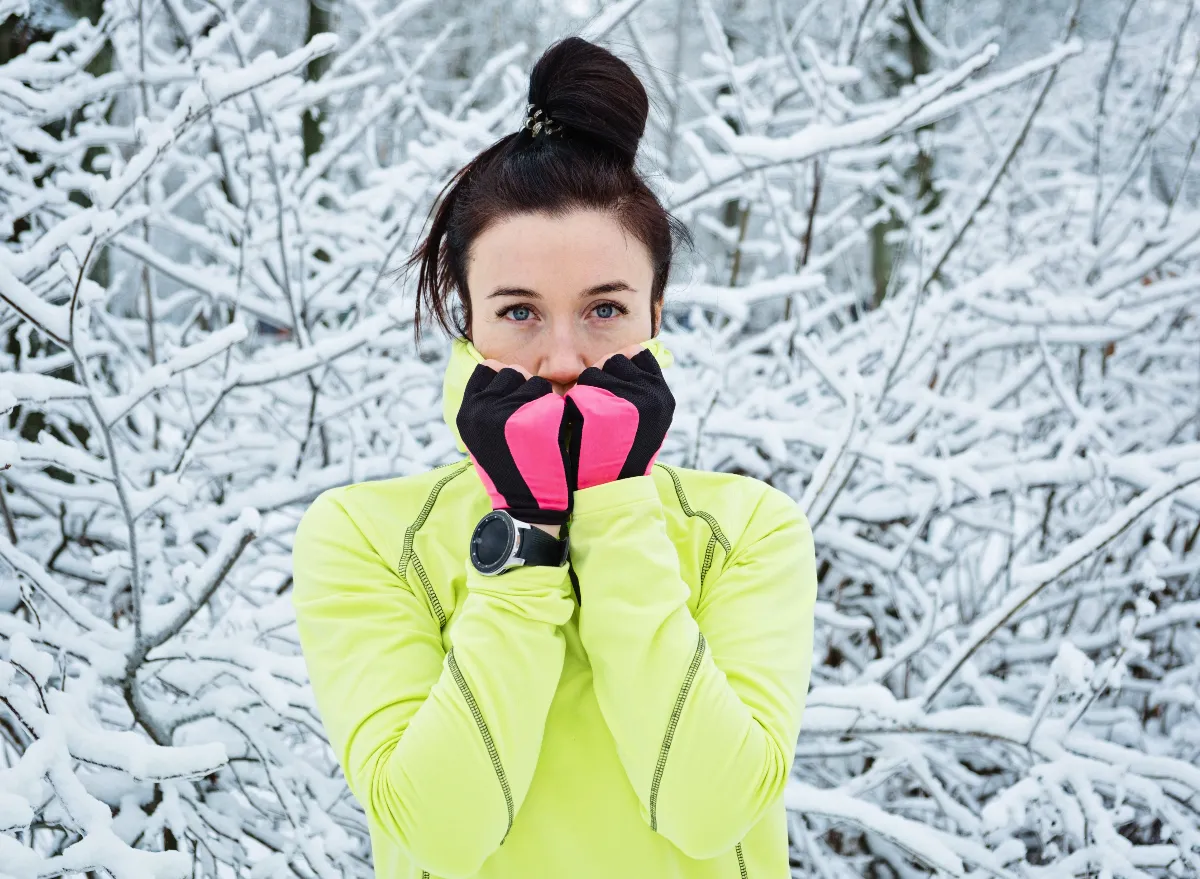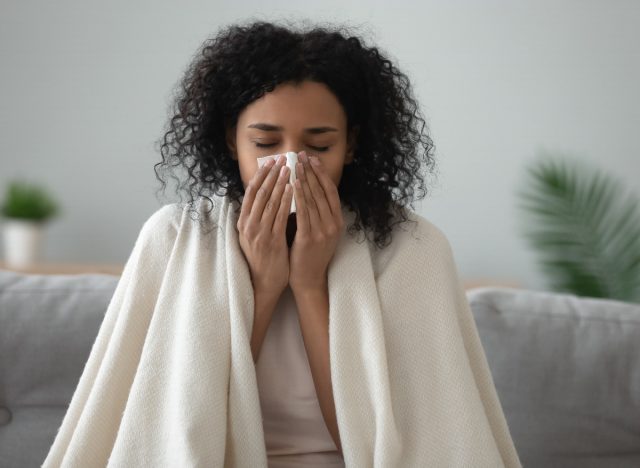Here’s What Cold Weather Does to Your Body When You’re Inactive

Baby, it’s cold outside—and it’s not even winter yet! Unfortunately, the change of seasons can negatively impact your overall well-being in several ways, and it’s important to not skip a beat when it comes to being consistent with your workouts. We spoke to Jen Widerstrom, celebrity trainer and Pikmin Bloom expert, and are here to let you know exactly what cold weather does to your body when you’re inactive, along with what you can do about it. So read on, and keep your exercise routine strong!
If you’re an early morning runner or gym enthusiast, heading outside to start your strides or getting to the gym throughout cold temps can be pretty brutal. The easier route to take for some is to hit the snooze button and catch some extra Z’s. We feel your pain, but take advice from Widerstrom, and don’t do it!
Instead of falling off track, switch up your routine, and work out at home or head out later in the day when the sun is shining and being outside is more doable. Consider adding some fun, seasonal cardio to your weekends, such as skiing, skating, or snowshoeing. There are negative consequences to your body that result from cold weather if you don’t get sufficient movement, so it’s crucial to be aware. Keep reading to learn more about what cold weather does to your body when you’re inactive.
Related: Fun Fall Activities That Burn Calories and Keep You Fit
You may experience pain, inflammation, and weight gain.
Eat This, Not That! chatted with Widerstrom to find out exactly how important motion is for your body. Widerstrom says, “[Motion] naturally increases your body’s flexibility while reducing inflammation and your sensitivity to pain. So, inactivity at any temperature is a one-way ticket to pain and the accumulation of unwanted fat pounds because it puts you in a surplus of energy—aka calories that are unused.”
Gaining weight during the colder months is very common, Healthline reports. After all, it’s the holiday season (Hello, homemade stuffing, gravy, and sweet potato casserole!) and many people like to cozy up by the fire to binge-watch their favorite flicks, becoming more sedentary. Needless to say, it should come as no surprise that in a study published in the journal Eating and Weight Disorders, participants dropped weight from winter to springtime and put on weight during the fall and winter months.
Your immune system may be compromised.

It’s important to remain active, fit, and healthy during cold and flu season. Your body works harder in frigid temps, and workouts will help kick up your immune system, Aston University explains. How so? Exercise pushes bacteria right out of your airways and lungs, which can decrease your risk of illness, flu, colds, and more, according to MedlinePlus. Physical activity also modifies your white blood cells and antibodies, helping you fight illness. The short elevation in your temperature caused by physical activity can ward off bacteria and infection. Lastly, a good workout can lower the release of stress hormones in your system, which can also help prevent you from getting sick.
You may feel depressed.
It’s common to feel depressed or moody during the colder months, due to the lack of vitamin D from the sun. People stay indoors much more and tend to not make as many plans as they do during the warmer weather months. And when you don’t have a lot of energy and you’re feeling blue, this can make consistency quite challenging.
Widerstrom shares, “Even on my most low-energy days I still move and do something as simple as walking.” To help her remain consistent, she uses a walking app, Pikmin Bloom, telling us that it helps keep her out of the energy surplus and also free of pain. The app has group challenges that are fun to do, as they are great company and provide incentives to get in more steps.
It’s healthy to be social, and your local gym can also provide an excellent opportunity to be around people with common interests. Learn what works best for you, and get to it!








